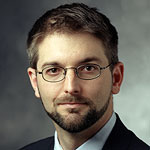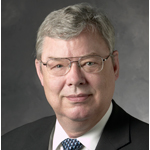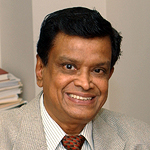- Center for Entrepreneurial Studies
- Center for Global Business and
the Economy - Center for Leadership Development
and Research - Center for Social Innovation
- Global Supply Chain Management Forum
- Research Papers
- Cases
- The Library
FOR FURTHER INFORMATION: Helen K. Chang, 650-723-3358, Fax: 650-725-6750
Research News
 Stanford Finance Expert: Federal Interpretation of Volcker Rule Would Lead to Constraints on U.S. Economic Growth and Recovery
Stanford Finance Expert: Federal Interpretation of Volcker Rule Would Lead to Constraints on U.S. Economic Growth and Recovery
Finance professor Darrell Duffie of the Stanford Graduate School of Business proposes alternative capital requirements for banks to eliminate potential unintended consequences of financial reform.
 What Does It Mean for an Executive to Make $1 Million? (PDF)
What Does It Mean for an Executive to Make $1 Million? (PDF)
Executive compensation figures are not always what they seem and often contain a diverse mix of cash and non-cash incentives, payable under contingencies that in many cases render their ultimate value quite different from their expected value. Professor David Larcker and Researcher Brian Tayan examine the difficulties investors face in understanding what compensation has been promised to executives and what they eventually earn.
 Everyday Low Pricing May Not Be the Best Strategy for Supermarkets
Everyday Low Pricing May Not Be the Best Strategy for Supermarkets
Supermarkets either advertise themselves as offering "everyday low pricing" or holding sales with special promotional pricing. New research coauthored by Stanford's Harikesh Nair says one model has lower fixed costs and the other produces higher revenues.
 The Lonely Shopper
The Lonely Shopper
Baba Shiv finds that people who are lonely prefer products that the majority don't prefer — but only in private.
 Are We Happy Yet? The Unexpected Links Between Happiness and Choice
Are We Happy Yet? The Unexpected Links Between Happiness and Choice
Choices that make people happy are complex according to research coauthored by business school Professor Jennifer Aaker. Factors include how old the subject is, his or her view of time, and is she focused on the present or the future?
 Hypothetically Speaking, Beware
Hypothetically Speaking, Beware
Baba Shiv's research reveals why hypothetical questions aren't as innocent as they seem.
 Player Hierarchy in the NBA Can Lead to Victory
Player Hierarchy in the NBA Can Lead to Victory
Unlike major league baseball, salary disparity in the NBA can make a positive difference on the court, according to new research coauthored by Nir Halevy of the Stanford Graduate School of Business.
Why Nice Guys Don't Always Make It to the Top
Nice guys may not finish first, according to research coauthored by Nir Halevy of the Stanford Graduate School of Business. In fact, taking care of others in your group and even taking care of outsiders may reduce a nice guy's chance of becoming a leader.
 Does an Effective Media Reduce Politicians' Incentives to Pander to Voters?
Does an Effective Media Reduce Politicians' Incentives to Pander to Voters?
Elections sometimes give policy makers incentives to pander — to implement policies that voters think are in their best interest even though the policy maker knows they are not, says Professor Kenneth Shotts. In general, an effective media reduces this tendency to pander, "but there are some exceptions to this general rule."
 Investor Flows Were Behind the 2008 Oil Price Wild Ride
Investor Flows Were Behind the 2008 Oil Price Wild Ride
The 2008 turmoil in world oil prices was not caused by an imbalance of supply and demand, argues Professor Kenneth Singleton of the Stanford Graduate School of Business. Instead there was an "economically and statistically significant effect of investor flows on futures prices."
 Power Corrupts, Especially When It Lacks Status
Power Corrupts, Especially When It Lacks Status
Individuals in roles that possess power but lack status have a tendency to engage in activities that demean others, according to new research from Stanford Graduate School of Business, USC, and the Kellogg School.
 Give Them the Gift They're Expecting
Give Them the Gift They're Expecting
When it comes to gift giving, most people are simply not paying enough attention to what others want says Professor Frank Flynn. They miss the boat by ignoring direct requests, wrongly assuming that going a different route will be seen as more thoughtful than something the recipient specifically requested.
 Kenneth Singleton Named Editor of Journal of Finance
Kenneth Singleton Named Editor of Journal of Finance
"Finance is becoming increasingly integrated with economics, and is drawing more widely from other disciplines including psychology and medicine," says Kenneth J. Singleton, the Adams Distinguished Professor of Management at the Stanford Graduate School of Business, who has been named editor of the prestigious Journal of Finance.
 Taking the Macho Out of Offshore Oil Rigs
Taking the Macho Out of Offshore Oil Rigs
Crew members on an offshore oil rig toned down their bluster and macho behavior as an unexpected side effect of an initiative to cut down on-the-job injuries. The case study, coauthored by Debra Meyerson of the Stanford Graduate School of Business, could present a model for minimizing the effects of gender in other work settings.
 Do CEOs Make the Best Board Members?
Do CEOs Make the Best Board Members?
A new survey from Stanford's Rock Center and Heidrick and Struggles examines the pros and cons of CEOs serving as board members. Active CEOs might be "too busy" to be effective and, say the researchers, CEOs may be more tainted by ethics lapses than board directors.
 Venture Capital Should Invest in Improving the Health Care Safety Net
Venture Capital Should Invest in Improving the Health Care Safety Net
Young companies trying to enter parts of the health care industry by focusing on helping patients stay healthy and allowing safety net providers to use their resources have a hard time attracting venture capital funds that focus more on traditional profit. A recent article by two Stanford Graduate School of Business researchers argues that it's time to change this pattern.
 TV Ads Do Influence Consumers — In Elections and Beyond
TV Ads Do Influence Consumers — In Elections and Beyond
By studying the outcome of the 2000 U.S. presidential election, Stanford professor Wesley Hartmann and his coauthor have proved that television advertising sells products. Along the way they also found that television advertising tipped the election in favor of George Bush over Al Gore.
 Evaluating Options for Reform of the Medical Malpractice System
Evaluating Options for Reform of the Medical Malpractice System
There are many potential ways to reform the United States' health care malpractice system that currently adds nearly 4% to costs. Stanford Graduate School of Business political economist Daniel Kessler has surveyed the alternatives created by laws in different states and finds that "wisely chosen reforms have the potential to reduce health care spending significantly with no adverse impact on patient health outcomes."
 When They Are Wrong, Analysts May Dig in Their Heels
When They Are Wrong, Analysts May Dig in Their Heels
When they are wrong about quarterly earnings forecasts, analysts may stubbornly stick to their erroneous views, a tendency that might contribute to market bubbles and busts, according to research coauthored by John Beshears of the Stanford Graduate School of Business.
Public Sector Pension Plans: Change Is Under Way
Public agencies in the United States have started moving toward self-directed defined contribution retirement plans for employees. Stanford Graduate School of Business professor John Beshears, who is researching retirement systems, cautions that the issues of retirement benefits and pay during working years need to be considered together, not as isolated issues.
 History Shows a 2012 Republican Victory Is Not A Sure Thing
History Shows a 2012 Republican Victory Is Not A Sure Thing
Support of proposals including healthcare reform and cap-and-trade environmental legislation in 2010 cost the Democrats 20 legislative seats and their majority control in the House of Representatives, says Professor David Brady. But he and his co-authors warn that the Republicans should not believe victory in the next election is assured.
 Why a Ferrari May Make Imported Wine Seem Expensive
Why a Ferrari May Make Imported Wine Seem Expensive
Ask consumers to study the price of an expensive foreign car. Then ask them whether a "foreign product," such as a meal in an Italian restaurant, seems expensive. According to research coauthored by Christian Wheeler of the Stanford Graduate School of Business the idea that foreign is expensive may transfer from the car to other goods.
Formal Management Systems Help Startups Succeed Says Award-Winning Paper
Young companies that adopt structured systems to run their operations in their early years grow three times faster than competitors and have a lower rate of CEO turnover, according to an award-winning research paper.
Understand Young Companies in Your Own Backyard, Report Urges Global Leaders
Policy makers need to understand how early-stage companies in their own area work, rather than try to create another Silicon Valley, says Stanford management professor George Foster. He is coauthor of a new report published by the World Economic Forum.
7 Myths of Executive Compensation
Corporate governance experts from Stanford Graduate School of Business say criticism of CEO pay might be off the mark.
The Positive Effect of Negative Information
When consumers get mild doses of negative information about a product or service, news about the blemish may actually strengthen their positive impression say researchers. This finding could affect online ads or even face-to-face sales processes say Baba Shiv and Zakary Tormala of the Stanford Graduate School of Business.
 Exploring Auction Models for Peer-to-Peer Lending
Exploring Auction Models for Peer-to-Peer Lending
In the emerging market for peer-to-peer loans, the auction method used can make an important difference to the borrower, says Stanford Graduate School of Business economist Nicolas Lambert.
 If Money Doesn't Make You Happy, Consider Time
If Money Doesn't Make You Happy, Consider Time
Forget Suze Ormond. Time, Not Money, Is Your Most Precious Resource. Spend It Wisely, says research by Jennifer Aaker.
 Why Failure Drives Innovation
Why Failure Drives Innovation
Silicon Valley is populated with people who fear only sitting on the bench while someone else scores with a great idea, says Professor Baba Shiv. How people approach failure is a key to success, he argues.
Women Who Display Masculine Traits — and Know When Not to — Get More Promotions Than Men
In the business world, women who are aggressive, assertive, and confident but who can turn these traits on and off depending on the social circumstances get more promotions than either men or other women, according to a recent study by Olivia O'Neill and Charles O'Reilly.
 Online Social Networks Can Increase Ad Revenue by Stimulating Content
Online Social Networks Can Increase Ad Revenue by Stimulating Content
To increase revenue, social networking sites need to give their most active users reason to post more information and make more friends, according to Harikesh Nair of the Graduate School of Business and his co-researchers.
When Is Bad Publicity Good?
In a new study from Stanford Graduate School of Business, researchers say in some cases negative publicity can increase sales when a product or company is relatively unknown, simply because it stimulates product awareness.
 Bankruptcy Laws Drive Corporate Default Rates
Bankruptcy Laws Drive Corporate Default Rates
Permissive bankruptcy laws, not bad business downturns, seem to be the greatest cause of corporate bond defaults, according to Professor Ilya Strebulaev, co-author of a study that researched 150 years of figures.
 Setting Vague Goals Can Help You Keep Those New Year's Resolutions
Setting Vague Goals Can Help You Keep Those New Year's Resolutions
People are more likely to stay motivated and achieve a goal if it's sketched out in vague terms than if it's set in stone with a specific target, according to a new paper by Professor Baba Shiv.
 Paying Star Employees Well is a Good Strategy for Innovation
Paying Star Employees Well is a Good Strategy for Innovation
Observers of Silicon Valley have always assumed that the most successful companies get their competitive edge by paying their star employees more than the competition to fuel innovation. Now research, co-authored by Professor Kathryn Shaw, and using the academic field of insider econometrics, has been able to prove that this assumption is indeed true.
 Industrial Organization Expert John Roberts Honored
Industrial Organization Expert John Roberts Honored
Former students, colleagues, and fellow coauthors of John Roberts gathered in September to present reflections of how his work and mentorship affected both the course of economic research and their lives.
 Tunneling Through Intercorporate Loans Damages Company Value
Tunneling Through Intercorporate Loans Damages Company Value
Majority shareholders who divert assets from one company to another for personal benefit can be found in some developing nations, robbing companies of value and even forcing them to be delisted from stock exchanges. Business school professor Charles M.C. Lee and his coauthors documented the damage in a study of Chinese companies.
 Tax Policy Has Changed Who Owns Stocks
Tax Policy Has Changed Who Owns Stocks
A new study from Stanford Graduate School of Business argues that household stock ownership decreases as the tax benefits associated with owning stocks inside a pension plan increase. The trend applies around the globe, says coauthor Ilya Strebulaev.
Attention to Body Language Can Combat Gender Stereotypes
When it comes to leadership, there are few differences in what men and women actually do, Deborah Gruenfeld, professor of organizational behavior has found. But there are major differences in perception, and body language matters.
Temporary Shocks Explain Conservative Fiscal Corporate Policies
The likelihood of temporary shocks, such as the 2006 contamination that shut down spinach growers, contributes in previously unexplored ways to CFOs’ conservative approach to debt financing. In fact, says coauthor Ilya Strebulaev, managers should be even more focused on risk management.
 Genes May Influence Consumer Choices
Genes May Influence Consumer Choices
A new study suggests that many consumer judgments may be determined by genetics. We're not born with a Prius gene, but we may have inherited a tendency to act in certain ways says Professor Itamar Simonson.
Firms in Corrupt Countries Pay a Price in Market Value
Virtue seems to pay according to Professor Charles M.C. Lee whose research shows that publicly-held firms in countries perceived as less corrupt trade at bigger market premiums than those in places deemed more corrupt.
 Innovating for the Health Care Safety Net: Sources of Funding
Innovating for the Health Care Safety Net: Sources of Funding
Medical Technologies with high "social value" can play an important role in helping safety-net providers use their resources more efficiently. However, traditional investors often see the total market potential for such technologies small relative to other, more immediate opportunities, leaving many companies struggling to secure capital, say researchers Stefanos Zenios and Lyn Denend.
 Pledge (and Hedge) Allegiance to the Company (PDF)
Pledge (and Hedge) Allegiance to the Company (PDF)
Many executives accumulate substantial dollar ownership in the firm they manage as part of their compensation package. They may want to limit their exposure by hedging a portion of the position through financial instruments or pledging shares as collateral for a loan. Can boards explain why they do or do not allow executive hedging? asks Professor David Larcker. If an executive has hedged the equity position, why does the board continue to grant new equity and not cash?
 Work-Life Balance: Men Want It, Too
Work-Life Balance: Men Want It, Too
The pay gap is narrowing between men and women in the workplace as is the percent of time men and women spend on family duties, but workplace policies have not caught up with these new realities, Professor Myra Strober says in an essay in US Banker.
 Why Bank Equity Is Not Expensive (Includes Video)
Why Bank Equity Is Not Expensive (Includes Video)
Three GSB faculty disagree strongly with leaders of the banking industry who contend equity is expensive. In fact, Professor Anat Admati and her co-authors argue that allowing banks to continue leveraging themselves is like subsidizing polluters - it will harm the greater society.
Sensitivity of CEO Wealth to Stock Price: A New Tool For Assessing Pay for Performance
In recent years, there has been considerable debate as to whether CEO compensation is actually correlated with performance in U.S. companies. Why don’t shareholders and stakeholders examine the relation between CEO wealth and stock price to measure pay for performance and detect the potential for “excessive” risk taking, asks Professor David Larcker.
 Don't Be Too Specialized If You Want a Top Level Management Job
Don't Be Too Specialized If You Want a Top Level Management Job
Generalists, men and women who have amassed experience with a broad spectrum of management areas, stand a better chance of making it to top management positions than those with more specialized resumes, says economist Ed Lazear of the Stanford Graduate School of Business.
 Study Calls for Sheltering-in-Place in the Event of Nuclear Attack
Study Calls for Sheltering-in-Place in the Event of Nuclear Attack
Stanford experts have concluded that in the event of a nuclear detonation, people in large metropolitan areas are better off sheltering-in-place in basements for 12-24 hours than trying to evacuate immediately, unless a lengthy warning period is provided.
 Is That CEO Telling the Truth?
Is That CEO Telling the Truth?
How do you tell if CEOs are not being truthful during quarterly earnings conference calls? Stanford Graduate School of Business researchers have developed a model to analyze the words and phrases used during these calls and found some specific speech patterns that give clues.
 How Did IBM Avoid Becoming Extinct?
How Did IBM Avoid Becoming Extinct?
In the 1990s IBM appeared headed for extinction. Today it is again a leading technology competitor. In an award-winning paper, Charles O'Reilly of the Stanford Graduate School of Business and his coauthors tracked how, by being ambidextrous, Big Blue avoided going the way of the dodo bird.
 Narcissists Better at Selling their Ideas
Narcissists Better at Selling their Ideas
Narcissists tend to do a better job of selling sizzle over steak and thus have a better chance at having their ideas adopted, says research by the GSB’s Frank Flynn and his co-authors.
Incumbents Thrive When the Home Team Wins
Voters' decisions to support incumbents are influenced by irrelevant events such as football scores that have nothing to do with the candidates' competence or effectiveness, according to new research by Stanford Graduate School of Business scholars. It's something politicians have already figured out.
Hollywood's "Red Scare" Spread Stigma by Association
Some 300 actors and writers were blacklisted during the 1950s, but researchers who analyzed how the social networks of that era worked say hundreds more saw their careers marred because they merely associated with those on the list.
First Selling the Idea to Senior Leaders Helps Organizations Realize Change
Getting all the senior leaders on board in advance is the most effective way to be successful in introducing change to an organization, according to research co-authored by business school Professor Charles O'Reilly.
 Executive Stock Options Boost Company Performance But Options to Rank-and-File Workers Show Minimal Effect
Executive Stock Options Boost Company Performance But Options to Rank-and-File Workers Show Minimal Effect
Stock options have a positive effect on firm performance when they are granted to executives, but giving options to lower-ranking employees seems to have no effect on the bottom line according to a new study
co-authored by Stanford Graduate School of Business Professor Ron Kasznik.
 CEO Succession Planning Lags Badly Research Finds
CEO Succession Planning Lags Badly Research Finds
More than half of companies today cannot immediately name a successor to their CEO should the need arise, according to new research conducted by Heidrick & Struggles and Rock Center for Corporate Governance at Stanford University. The survey of more than 140 CEOs and board directors of North American public and private companies reveals critical lapses in CEO succession planning.
 Professor Charles Lee: Beating the Crowd at Picking Stocks
Professor Charles Lee: Beating the Crowd at Picking Stocks
His portfolio management style accounts for human biases to nudge prices closer to their real value.
 Sucker to Saint and Other Views of Our Moral Behavior
Sucker to Saint and Other Views of Our Moral Behavior
Lofty principles matter much less than we think in determining our moral behavior says Professor Benoît Monin. We're more likely to be guided by whether we feel we are a good or bad person or whether we feel others around us are good or bad.
 Srinivasan’s Career in Marketing Science Commemorated
Srinivasan’s Career in Marketing Science Commemorated
Professor Seenu Srinivasan is recognized internationally for his work on consumer choice and sales force compensation, but as his peers testified during a gathering celebrating his 36-year academic career, Srinivasan is also revered as a teacher and mentor.
Web 2.0 Technology and the Developing World
A low-cost incubator designed to save premature babies in impoverished areas got a boost from the 21st century world of viral communications recently when a group of students went to work with Facebook, Twitter, and YouTube, and raised $4,000 to support the firm building the incubator. Both the incubator — called Embrace — and the idea for viral marketing came out of separate classes at the Stanford Graduate School of Business.
Electric Cars, Clean Coal Should Go Together
The United States will see a slow move toward electric car adoption in the next 5-to-10 years while China will see only a small market for cars but big opportunities to manufacture and export batteries. A Stanford MBA student class study doubts either nation will move quickly to adopt clean coal technology.
 William Sharpe and the 4% Rule
William Sharpe and the 4% Rule
Many retirees are advised to follow the 4% rule for managing spending and investing. William F. Sharpe and his co-authors argue that following this advice can lead to overpayments and surpluses. To avoid these pitfalls, retirees also have to have a clear idea of how much risk they are willing to take.
Can Oil Filters Improve Health Care?
For millions of people across Africa, motorcycles can be a key to effective health care. A well-maintained fleet of vehicles and motorcycles to connect patients, medical expertise, and medicine is sometimes the most vital link in the health delivery supply chain. A new case written for the Stanford Global Supply Chain Management Forum describes one successful program.
 Incentives for Employees in Just-in-Time Settings
Incentives for Employees in Just-in-Time Settings
In some manufacturing environments, having workers engage in just-in-time production can actually cause motivational problems and increase costs. The answer is to make sure employees' pay is tied to their actual productivity—and that means allowing for bad days and, consequently, some inventory build-up.
 Small Steps, Big Leaps For Social Causes
Small Steps, Big Leaps For Social Causes
Do you get a better response by describing the size of the Haitian earthquake disaster or focusing on one specific victim? Should you ask supporters of your cause to donate time or money? How will strangers respond to your request for help? These were some of the topics at a conference at the Stanford Graduate School of Business that brought together business leaders and academics to examine the psychology of giving.
“Non-Profits Are Seen as Warm and For-Profits as Competent: Firm Stereotypes Matter”
Consumers frequently stereotype nonprofits as warm, generous and caring organizations, but assume their business abilities will be less competent than their for-profit peers’. In contrast, for-profit companies are stereotyped as more competent with a balance sheet, but are not necessarily socially aware. Understanding these views can affect how both groups do business.
 Harnessing Social Media to Make a Difference
Harnessing Social Media to Make a Difference
In three months a group trying to save a friend’s life used social networking tools to get over 24,000 South Asians to register for the National Marrow Donor Program. Their effort inspired Professor Jennifer Aaker to develop a course at the Stanford Graduate School of Business, The Power of Social Technology, which is supported by a set of social technology cases.
 Money Makes People Happy, Especially If They're Paid By The Hour
Money Makes People Happy, Especially If They're Paid By The Hour
Researchers find a stronger tie between money and happiness for people paid by the hour than by salary, because hourly workers are more regularly reminded of the value of their time, according to work co-authored by business school Professor Jeffrey Pfeffer.



